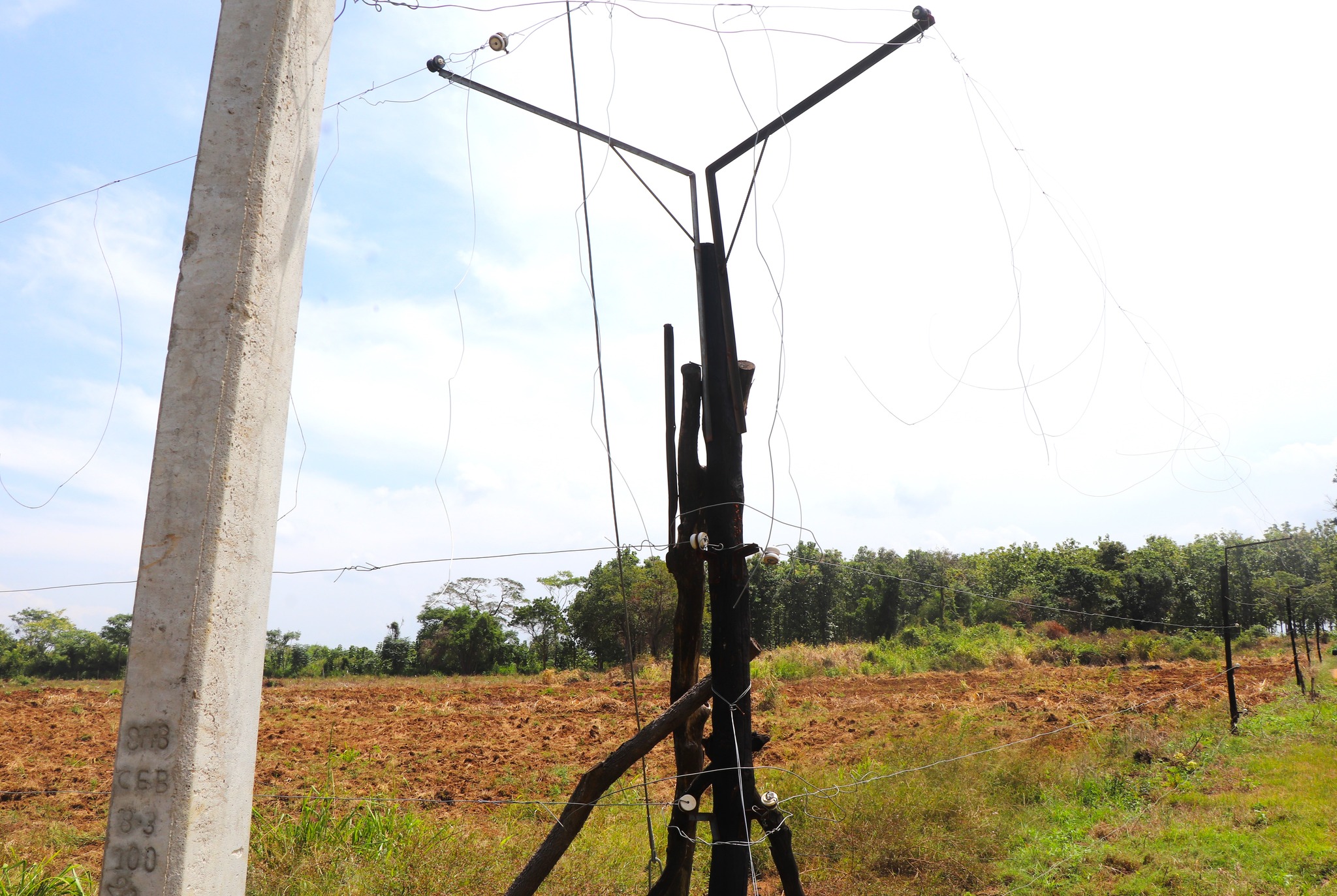
Sajeewa Chamara
Land and Agriculture Reforms Movement
Dishan Gunasekara, Basnayaka Nilame of the Ruhunu Maha Kataragama Devalaya, has illegally acquired over 150 acres of forestland that belongs to the Department of Forest Conservation and are connected to the Udawalawa National Park, and that serves as water catchment forests of Kukulkatuwa and Bodagama tanks located in the Bodagama and the Kivul Aara Grama Niladhari Divisions in the Thanamalwila Divisional Secretary's Division, and is involved in a large-scale racket of leasing out those lands to various businessmen. K.H.A. Kelum Nishantha, Divisional Secretary, Thanamalwila, and the officers of the Thanamalwila Range Forest Office of the Department of Forest Conservation have provided their support to run this racket. H.M.R.C.K. Bandara, who is in charge of the Land Division of the Ruhunu Maha Kataragama Devalaya is handling the operation of this racket. Through this racket, which has been being carried out in a very organized manner for several years, lands that belong to the Department of Forest Conservation have been leased out on 35-year lease basis to a few persons including one named C.P. Deshika from Ranna area and a businessman named Prabhath from Ratnapura area. All these forestlands that have been leased out in this manner are habitats for wild elephants.
In addition to these forestlands that belong to the Department of Forest Conservation, some lands that had been being cultivated by several farmers for a long time have also been forcibly acquired claiming that those lands belong to the Kataragama Devalaya and have been leased out to businessmen. Consequently, some of the farmers who have lost their lands in this manner, have been compelled to clear the state-owned forestlands managed by the Department of Forest Conservation in order to expand their farmlands.
Apart from that, Jagath Pushpakumara, former Member of Parliament and Shasheendra Rajapaksa, State Minister of Irrigation, too, had distributed lands in this area belonging to the Department of Forest Conversation among their relatives and friends prior to this. Accordingly, it has been revealed that the said illegal forestland racket has been taking place for many years in a very organized manner with the sanction of the Department of Forest Conservation as well.
The businessmen who have obtained the said state-owned forestlands illegally on lease basis have cleared the forests completely, have constructed roads and built electric fences to prevent the entry of wild elephants, and have established farmlands. Moreover, these businessmen, who have forcibly taken over the lands that used to be cultivated by the farmers for many years, have removed using bulldozers the cultivations such as groundnuts, green gram, cowpea, maize and lemon that had been grown in those lands acquired from the farmers and they have also destroyed the cultivation wells. The present owners of these lands have constructed permanent buildings on these lands, and have settled in them, too.
Furthermore, deeds are currently being processed for the distribution of 48 more acres of state forestlands in this area. It is being done with the support of the Divisional Secretary, Thanamalwila, and the officers of the Range Forest Office. When inquired further about this, the officials of the Department of Forest Conservation revealed that 80 acres of forestland in this area managed by the Department of Forest Conservation has been deviously acquired by the Divisional Secretary, too.
All these activities have been carried out in violation of the Forest Conservation Ordinance, National Environmental Act and the Antiquities Ordinance. Not only that, this group of persons including the officials and the Basnayake Nilame of the Kataragama Devalaya have violated the Penal Code, too, by leasing out these lands using forged documents.
Section 20 of the Forest Conservation Ordinance, which was last amended by Act No. 65 of 2009, have provided for the protection of state forestlands. Sub-section 20(1) of this Act specifies the prohibited activities in state-owned forests. Accordingly, all acts of cutting down trees, clearing forests, building temporary or permanent constructions or settling in such constructions, construction of and use of roads in forests are prohibited.
A person found to be guilty of committing such prohibited act, when convicted by a Magistrate's Court, can be imposed on a sentence of up to 2 years or a fine of Rs. 5,000 to 50,000 or both. In addition to these penalties, an amount of compensation that is assessed by the court for the damages caused to the forest, too, will have to be paid as a fine. In terms of Sub-section 20(2) of the Act, it is also an offence to aid and abet carrying out of prohibited activities in these forests, and a person found to be guilty of such act will be imposed on the same penalties.
In terms of Section 49 of the Act, Every Forest Officer shall intervene in preventing the commission of a forest offence. Sub-section 48(1) of the Act provides that a person who commits an offense in a state forest can be arrested without a warrant. Accordingly, no Forest Officer can violate these laws or avoid the implementation of these laws.
Apart from that, in terms of the National Environmental Act No. 47 of 1980, last amended by Act No. 53 of 2000, too, destruction of these forests is illegal. As per the gazette notification No. 772/22 dated 24 June 1993 published in terms of Section 23(y) of this Act, prior to the use of a forest covering an area exceeding one hectare for a non-forest purpose, the relevant development activities shall be carried out subject to the environmental impact assessment process and with prior written approval.
In terms of Sub-section 23(aa) of this Act, in the event that a person or a group of persons engaged in implementing a project illegally without obtaining approval subject to the proper environmental impact assessment process are convicted before a magistrate's court in terms of Section 31 of the Act, a fine not exceeding Rs. 15,000 or an Imprisonment of up to 2 years or both can be imposed on such persons.
Clearing of these forests has been committed in violation of the Antiquities Ordinance No. 09 of 1940 as amended in addition to violation of the said environmental acts. As per the Procedural Rules of Projects No. 01 of 2000 published by the gazette notification No. 1152/14 dated 04 October 2000 in terms of Sections 43(a) and 47 of this Ordinance, an archaeological damage assessment shall be carried out prior to clearing of an area exceeding 2 hectares and archaeological approval shall be obtained for that. The law must be implemented against the persons who clear forests illegally without obtaining any such approval and against the persons who have illegally acquired forest lands on lease basis.
In terms of Section 452 of Chapter Eighteen of the Penal Code, preparation of documents fraudulently with the intent of defrauding is called forgery. Using a forged document as an authentic document, too, is a punishable offence under Section 459 of the Penal Code. In terms of Section 457 of the Penal Code, a person who prepares forged documents and one who uses forged documents as authentic documents can be subjected to a sentence of up to 7 years and a fine. Accordingly, the group of persons including the Divisional Secretary, Thanamalwila, and Basnayake Nilame of the Kataragama Devalaya are guilty of committing all these offences.
The said laws must be implemented and the destruction of forest must be stopped immediately in order to control the fall of the agriculture and the livelihoods of the famers caused by the loss of water catchment forests of the tanks and also to prevent the escalation of the human-elephant conflict caused by the destruction of the habitats of elephants. Apart from that, it is also necessary to implement these laws promptly in order to create a country where every individual can live freely by way of preventing anti-democratic acts by which the rule of law and the basic rights of the people are violated.
Furthermore, in terms of Section 289 of Chapter XIV of the Penal Code, which refers to offences related to morals, willful neglect of a statutory duty, omitting to perform a duty imposed upon by an act or ordinance is a punishable. Accordingly, the officials of the Department of Forest Conservation have violated the Penal Code by omitting to enforce the law against the leasing out of and clearing of state-owned forests. Therefore, law should be enforced against those officials as well.
No government agency including the police has made any intervention against the violation of the fundamental rights of the farmers an addition to the destruction of forests. Consequently, these people have been displaced in the very lands where they used to live. In terms of Articles 14(1)(g) and (h) of Chapter 3 of the Constitution, which relates to fundamental rights of the people, every citizen is entitled to the freedom to engage in any lawful occupation and to reside in a place of his choice in Sri Lanka. If a citizen is deprived of this right, such citizen should be entitled to equal adjudication and equal implementation of law and the equal protection of law in terms of Article 12(1) of the Fundamental Rights Chapter. However, although complaints have been made against acquisition of the people's farmlands forcibly by Basnayake Nilame of the Kataragama Devalaya, and against the destruction of their cultivations and leasing out of those lands to other people, no action has been taken either by the Thanamalwila Police or by the Divisional Secretary, Thanamalwila. The police have even refused to accept complaints. Thus, these people have been deprived of all their fundamental rights by the officials and Basnayake Nilame.
Many of the Articles contained in the Declaration of Human Rights adopted by the Assembly of the United Nations on 10 December 1948 have been violated in this land racket. As a country that obtained its membership in 1955, Sri Lanka should work to create a fair and just society through the protection of human rights - but, it has not acted accordingly. In terms of Article 1 of the Declaration of Human Rights, all the people living in a country have equal dignity and equal rights. In terms of Article 6, every person is entitled to equal treatment before the law in all respects. Article 7 sets out that all persons are equal before the law. In terms of Article 8, every person has the equal right to seek justice under the law of the state. In terms of Article 17, every person has the right to own property and no one should be deprived of such property by force. However, these farmers have been deprived of all these human rights.
It is in order to prevent these enormous pressures that are exerted by the powerful individuals and the officials against the farmers and wild animals that we should make interventions to correct all these wrongful acts thereby enabling the creation of a country where every citizen can live freely without any undue influence through the building of a democratic governance structure.






